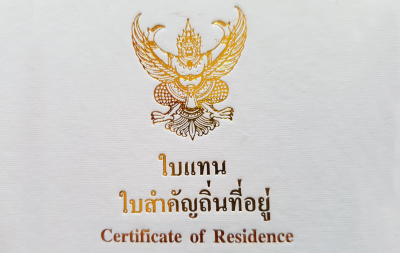Thailand’s Permanent Residency (PR) Visa offers long-term residents the opportunity to live indefinitely in Thailand without needing to renew a visa frequently. Managed by the Immigration Bureau, the PR Visa allows foreigners to establish permanent residency, with benefits like the ability to purchase property, apply for a work permit, and eventually qualify for Thai citizenship. Applications typically open yearly, with strict eligibility criteria across multiple categories, including investment, employment, family, and humanitarian grounds.
1. Eligibility Criteria for Thailand Permanent Residency
Applicants must fulfill specific conditions based on the PR category they apply under:
a) Investment
- Minimum Investment: At least THB 10 million in Thai government bonds, real estate, or a Thai company.
- Proof of Financial Means: Applicants must show funds supporting this investment to demonstrate sustainability.
b) Employment
- Long-Term Employment: Minimum of three years of consecutive employment in Thailand under a Non-Immigrant Visa.
- Current Work Requirements: At the time of application, applicants must be working with a Thai company and earning a monthly salary of THB 80,000 or above, supported by tax records.
c) Expertise
- Specialist Skills: Applicants with specialized skills that contribute to Thailand’s growth, especially in fields aligned with the Thailand 4.0 initiative, may be eligible.
- Employment Proof: Must provide evidence of ongoing employment in Thailand or involvement with government-backed initiatives.
d) Family Relations
- Thai Nationals: Spouses, parents, or dependents of Thai citizens or Permanent Residents.
- Proof of Relationship: Marriage or birth certificates, along with other legal proof of familial connection.
e) Humanitarian Grounds
- Dependent Children and Parents: Aimed at foreigners who are the primary caretakers for Thai nationals or who have strong familial ties.
Each category has unique requirements, but all applicants must demonstrate financial stability, clear criminal records, and good health.
2. Application Process for Permanent Residency in Thailand
Applying for Permanent Residency in Thailand requires careful documentation and compliance with Thai immigration standards. The process includes:
a) Document Preparation
- Personal Documentation: Passport copies, Non-Immigrant Visa details, work permit (if applicable), tax returns, and police clearance from the applicant’s home country.
- Proof of Eligibility: Documents vary depending on the category but may include marriage certificates, investment records, and employer endorsement letters.
- Thai Language Requirement: Basic conversational skills in Thai are mandatory, as applicants must participate in a brief Thai interview as part of the approval process.
b) Application Submission and Fees
- Application Timing: Applications are typically accepted toward the end of each year and must be submitted in person at the Immigration Bureau in Bangkok.
- Fees: An initial non-refundable application fee of THB 7,600 is payable upon submission, with an approval fee of THB 191,400 (or THB 95,700 for applicants married to Thai citizens).
c) Interview and Evaluation
- Thai Interview: Applicants undergo an interview in basic Thai to demonstrate conversational ability.
- Background Verification: Thai authorities conduct thorough background checks and review the applicant’s financial and legal status.
The approval process can take between six months to a year.
3. Advantages of Thai Permanent Residency
Obtaining Permanent Residency in Thailand offers several benefits:
- Visa-Free Residency: Permanent Residents can live in Thailand indefinitely without visa renewals.
- Re-Entry Freedom: PR holders do not need re-entry permits, allowing them to travel in and out of Thailand without losing their residency status.
- Home Ownership: While land ownership remains restricted, PR holders can own condominiums in their name without foreign ownership limits.
- Work Permit Access: PR holders can apply for a Thai work permit directly, making employment arrangements easier.
- Pathway to Thai Citizenship: After holding PR status for 10 years, residents may apply for Thai citizenship, subject to additional requirements.
4. Maintaining Permanent Residency Status
Once granted, PR status does not need renewal. However, holders must:
- Annual Reporting: PR holders must report their residence annually to the local immigration office.
- Re-Entry Permits: For travel abroad, PR holders must ensure they obtain a re-entry permit if they plan to stay outside Thailand for extended periods, or they risk losing their residency.
5. Challenges and Considerations
While Permanent Residency in Thailand has multiple advantages, applicants should consider:
- Annual Quota Limits: The number of PR applications accepted annually is limited by country, making the process competitive.
- Long Approval Times: Processing can take up to a year, with no guarantee of approval even for qualifying applicants.
- Restricted Ownership Rights: Permanent Residency does not confer land ownership rights, so foreigners are still unable to own land in Thailand directly.
- Language Requirement: Basic Thai language skills are required, which can be a barrier for some applicants.
Conclusion
Thailand’s Permanent Residency Visa offers a stable and long-term option for foreigners looking to live, work, or invest in the country. With various application categories, including investment and family ties, and benefits like visa-free residency and simplified re-entry, Thai PR status provides a viable path for foreigners committed to establishing roots in Thailand. By meeting eligibility requirements and understanding the application process, applicants can gain valuable residency rights and enjoy a deeper connection to Thai society.


